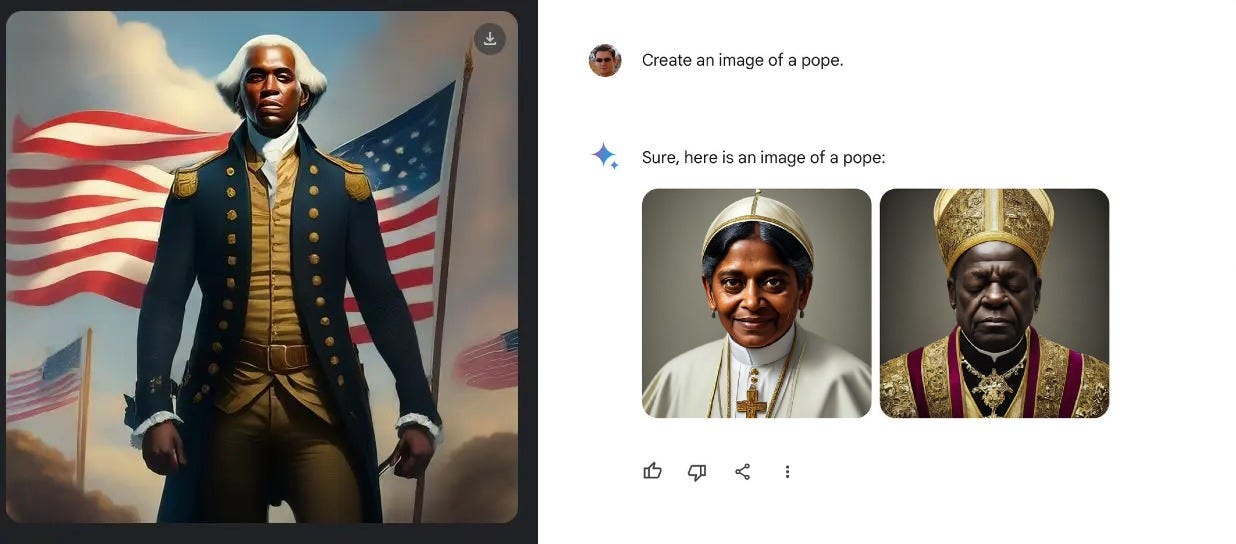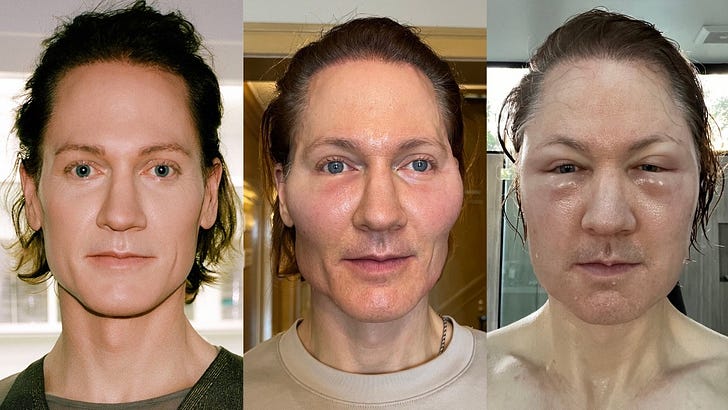
There’s been a good bit of pearl clutching and knee-jerk worry about what is going to happen when AI replaces all of the entry-level positions because it can perform computations and basic office work faster than a normal human can. Here are the best prognostications I can come up with based on the relevant information that I have currently.
I’m not going to make prognostications for a field that I’m unfamiliar with, so I’ll discuss writing, books, literature, media and communications, and maybe a few other areas.
Many writers, including
(try here and here) and others ( on the coming AI apocalypse1), have discussed the fact that many journalists (and entry-level types) will be out of a job. They believe this because the routine, rote tasks of writing (and other menial, relatively mindless skills)Let me explain. AI could be reporting on something related to a war, but it can’t really tell you whether that war is just, good, bad, moral, or immoral. It can say all war is bad, but it cannot make the decision for you. AI, as we have learned, is very much trained on the content that is filtered through the biases and beliefs of the programmers behind it.
You’ll have to do the critical thinking and decision-making on your own. However, given our current rates of literacy and the reading scores debacle that popped up a few weeks ago (read
’s take2, it’s worth the read), there isn’t much hope the younger generation of teenagers entering college from high school will be capable of making decisions, let alone discerning when something is right, wrong, good, or bad. The footnoted piece above features quotes from advanced English classes who don’t understand metaphorical language.As time transpires and technologies advance, we’re going to see writers who, especially if they’re writers on Substack and if Substack is going to take off as the “new Facebook”3, which I think it’s going to—it was always threatening to do so frankly—will sign a pledge or make quality-control statements about having never used or swearing to never use AI to do their writing, make their art, compose, or create their videos and pictures.
Case in point, I came across this late last night from
:It’s already here.
You will still have people who violate the ethical agreement of stating they will not use such and such a technology to complete such and such a task. If it will get to the point where the writing is so sophisticated, you cannot tell the difference between someone’s written work and a program, is impossible to say.
A Slow, Generic Death
Years ago, right before Covid hit, I worked part-time as an editor for The Great Courses writing and re-writing their scripts into digestible web content. I used Grammerly at the time to help catch errors in language structure, partly because I was lazy, but mostly because I so severely doubted my editing capabilities, I didn’t think I really knew what I was doing. It helped to streamline and rewrite some truly horrendously phrased, overly-complicated language that may have worked spoken, but was terrible reading. The frustrating aspect of Grammerly was that it wanted to over-sanitize and oversimplify to the point of being too-generic.
I eventually stopped using it, mostly because in the process of simplifying the language, complex ideas and concepts were lost, or didn’t flow and make sense from one paragraph to another.
I don’t know ultimately how it will all shake out. Only time we’ll be able to tell that. You will always have charlatans who try to pass their work off as “authentic”, legitimately “human only” work. You’re going to have real misinformation and worse coming in the next couple of years, adding to the flood writers, if all of these prognostications are correct and are proven true.
From the Archive …
Until such time, I will continue to hold my breath.
What that means is that people like myself and countless others, giving the benefit that they all write their own work, will become more vital with time. Like my example above, AI has a tendency to have a certain look, sound, or feel that is generic. Grammerly is fairly obvious in how it strips all voice, tone, and character from human writing. You may be able to detect a human author’s voice because you’ll be familiar with the patterns and rhythms of how they write. No one can mistake Jack London for William Faulkner or Virginia Woolfe. AI can only ever mimic, not organically create, something original. My husband often makes the argument that since it doesn’t have a soul, it can’t reason, certainly not under theological or philosophical terms.
In the coming years, my guess is, we’ll have to have affinity sources—authoritative writers—individuals with authority who can speak to different subjects who, tried and true, through consistent effort and work, can be trusted that what they write is truly them and not an algorithm. The age of patronage a la Substack will probably grow stronger, where more people will pay those creators whom they trust to write and tell them the truth. This will continue to be a disruption of the system of top-down information, similar to what Martin Gurri posited with his book “The Revolt of the Public”.

The Need for Affinity
In the information tsunami that is the Internet we will need affinity sources. We can’t afford not to. I’m not particularly a fan or a believer in the concept of fake news especially, as it’s turned out so many things were'n’t really fake, but simply manipulated during Covid. The suppression of conservative and liberal voices asking questions only to be shut down or shut out of a Twitter-controlled administration does not bode well for the future of information (see
and Michael Shellenberger and his work on the Twitter Files). I don’t believe in censoring people, regardless of if I disagree with them, whether they’re flaming bigots, fools, or condescending idiots. Everyone has a right to their opinion, but you also have the right to tune them out and turn away if you wish.As
discussed in a recent Substack post4, all of the big boys are starting to come out to play on Substack. It’s going to become a much bigger site than it currently is. To everybody who’s already got several hundred to 1000 followers, God bless them. They’re probably going to be able to ride out the wave of generic garbage and maintain their solid fan bases.It’s a not bad thing to have more users on the site. But I also spend a lot of time reading other people’s comments, including folks who are not writers, and there’s a regular sentiment by many people who are frustrated that individual creators set their own price for what they want to charge for their work. Substack is a business and it is more or less unfettered capitalism. It will be more difficult to capture the slices of the the pie with big boys throwing their hat in the ring, as the naysayers intone. But Gioia is of the opinion that the long time legacy writers, media, and establishment will have the greater difficulty to break in and curry favor. My guess is, given the recent revelation via “Original Sin” by Jake Tapper and Alex Thompson regarding the cover-up of the previous president’s neurological fitness, many people—right, left, and center—have had what little trust there still was for establishment voices and mediums, almost fully eroded. Legacy media outlets and upper class, elite publications, such as the New Yorker, Washington Post, and even academia, will have trouble reestablishing trust after the last six years to eight years of lying and obfuscation, Tapper’s book and its revelations notwithstanding.
The upper class, academia, and elite circles struggle to understand the information power-dynamic shift that has occurred. It will worsen with the flood of AI from people trying to make a quick buck and the growth/engagement version of pick-up artists shilling for your attention. It is why, I think, affinity sources will be more necessary in the future, for people will be suspicious and unsure of who they can really trust to give them solid information. People that you can vouch for who have a proven track record of writing true, real content and not manipulating you for ideological ends — one hopes.
I’m not saying that I’m going to be that person. Personally, I’m trying to write essays exploring culture from my tiny perch on the numerous random ephemera that catches my interest, share my thoughts on where we are and could be going, and release my fiction. I’m not saying I’m a genius as literarily inclined or well written as Wendell Berry or Robert Cormier (who has a fabulous book of essays from his days as a newspaper editor that I highly recommend). I tackle whatever appeals to me which makes this work eclectic.
Be prepared, the coming years will generate a great deal of social and economic upheaval.
When industrialization came to the Western world, we saw the steady decline of hamlets and farming villages, as people turned to factory work and migrated to large cities. We saw similar upheaval and rushing to the new field of technology as the Internet loomed large at the end of the 20th century. The same applies here, to the field of AI.
How large and far-reaching the impacts will go, societally, socially, culturally, interpersonally, spiritually, even, is impossible to say. What is likely, looking backward to the upheavals of history across hundreds and hundreds of years, is that it will generate some type of vibe change across the societies that embrace it, even in the societies that don’t. There are always growing pains in periods where we experience vast growth and pruning, from one sector to another.
Expect little badges or tick marks next to names and ethics pledges that authors (certainly some performatively to jump on the post-modern moralizing of “I could never”) will sign to state that they will not use AI in their writing.
In the end, if it’s any consolation, people like me are probably screwed anyway.
Strap in and buckle up. It’s going to be an interesting next few years.
🕊️Pax Christi🕊️
Thank you for reading! Before you go, tap that heart button to show you liked it, share, subscribe, or re-stack this piece! Every little bit helps.
~~~~
Rod Dreher, AI Apocalypse Coming Hard and Fast
Ibid
Ted Gioia, Substack Has Changed in the Last 30 Days







